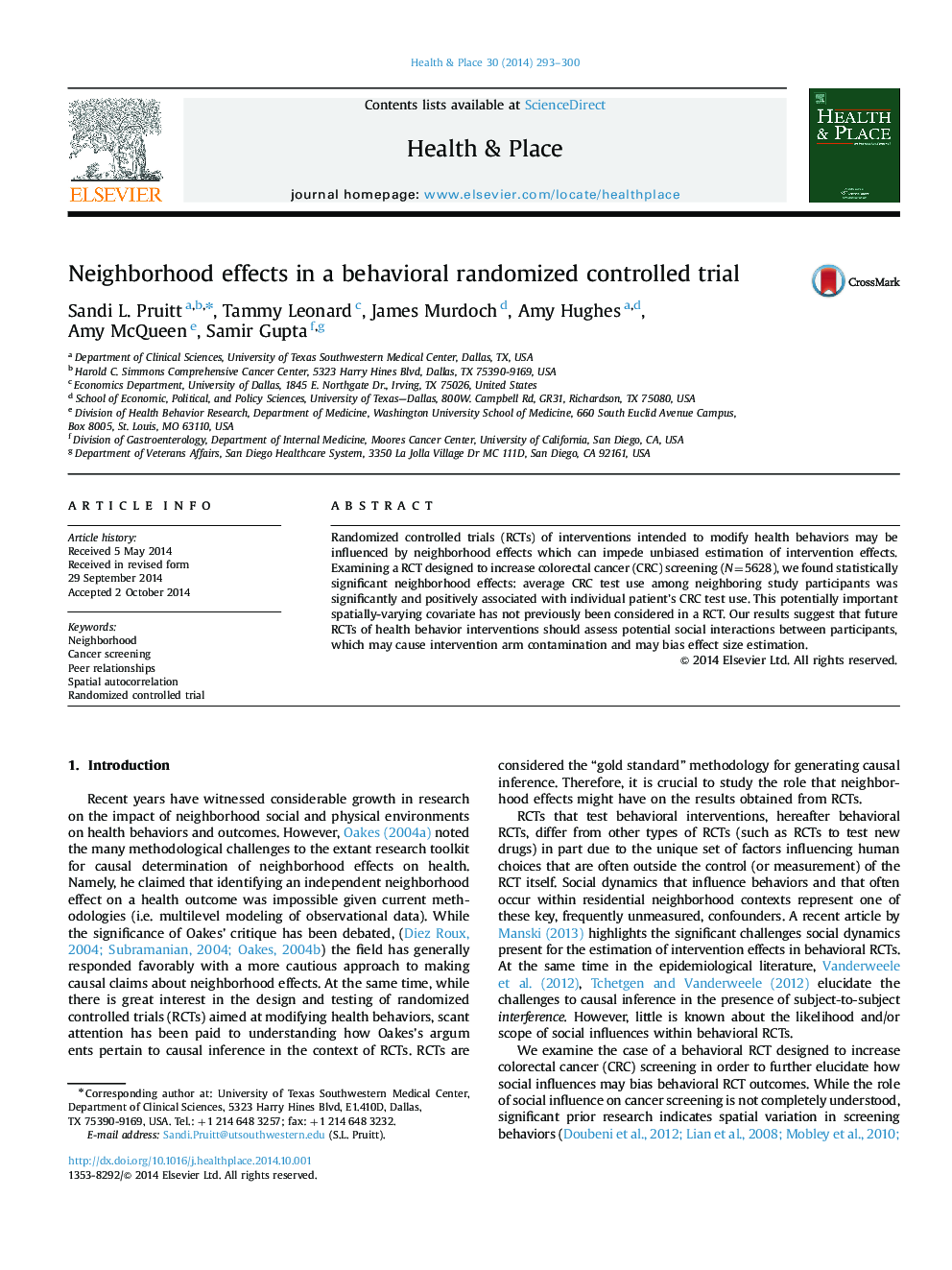| Article ID | Journal | Published Year | Pages | File Type |
|---|---|---|---|---|
| 7458549 | Health & Place | 2014 | 8 Pages |
Abstract
Randomized controlled trials (RCTs) of interventions intended to modify health behaviors may be influenced by neighborhood effects which can impede unbiased estimation of intervention effects. Examining a RCT designed to increase colorectal cancer (CRC) screening (N=5628), we found statistically significant neighborhood effects: average CRC test use among neighboring study participants was significantly and positively associated with individual patient's CRC test use. This potentially important spatially-varying covariate has not previously been considered in a RCT. Our results suggest that future RCTs of health behavior interventions should assess potential social interactions between participants, which may cause intervention arm contamination and may bias effect size estimation.
Keywords
Related Topics
Health Sciences
Medicine and Dentistry
Public Health and Health Policy
Authors
Sandi L. Pruitt, Tammy Leonard, James Murdoch, Amy Hughes, Amy McQueen, Samir Gupta,
